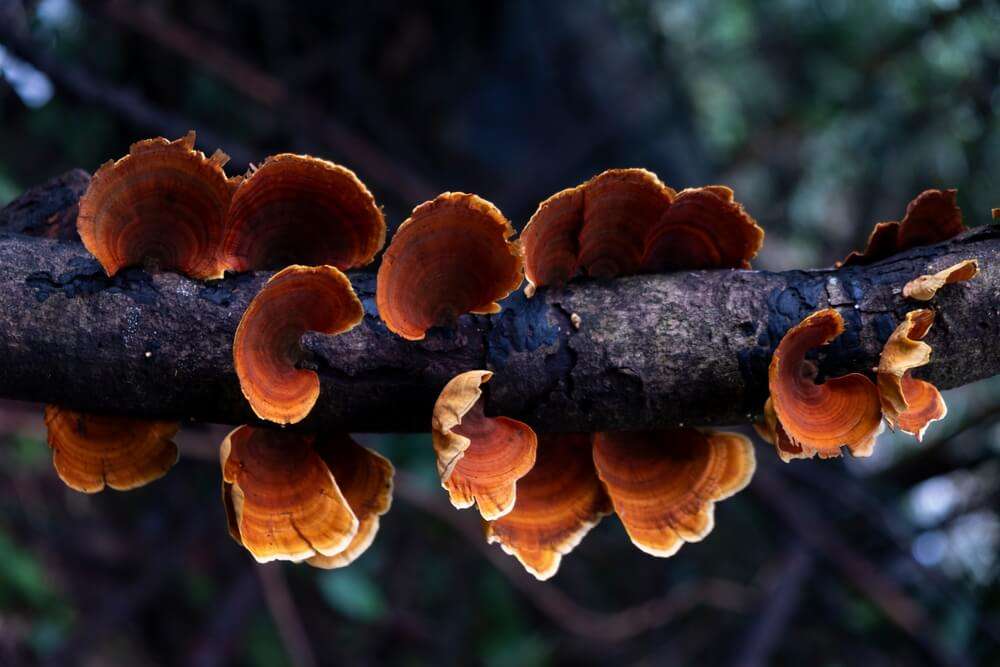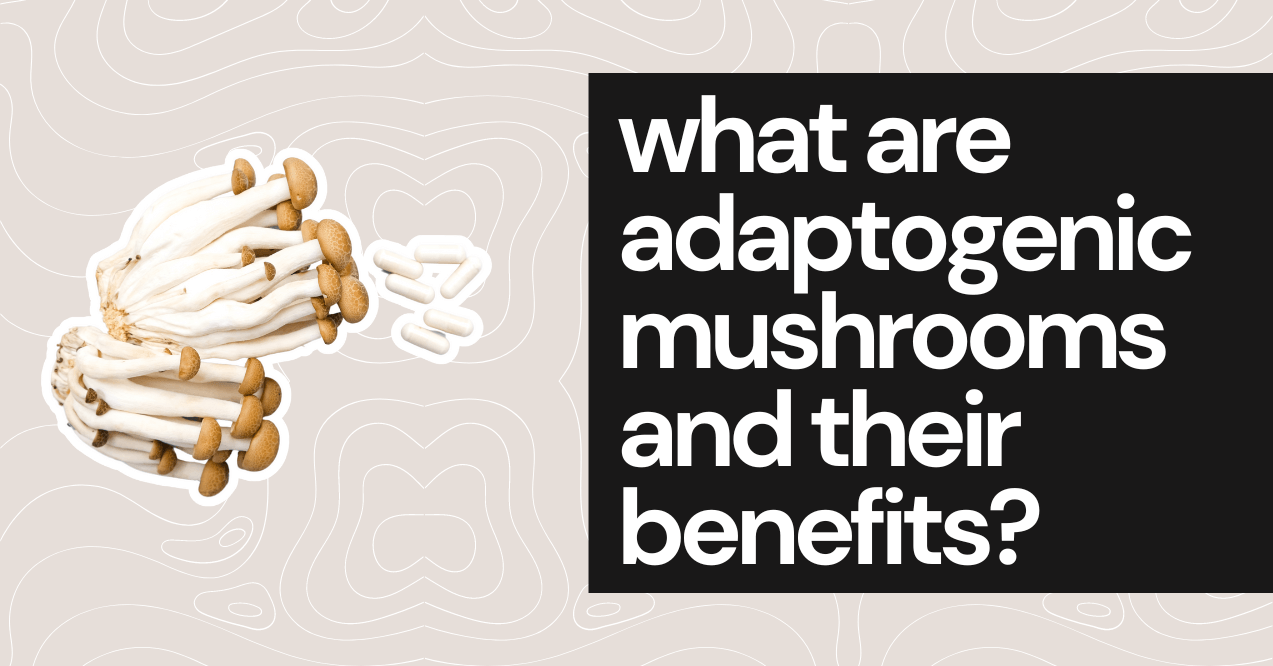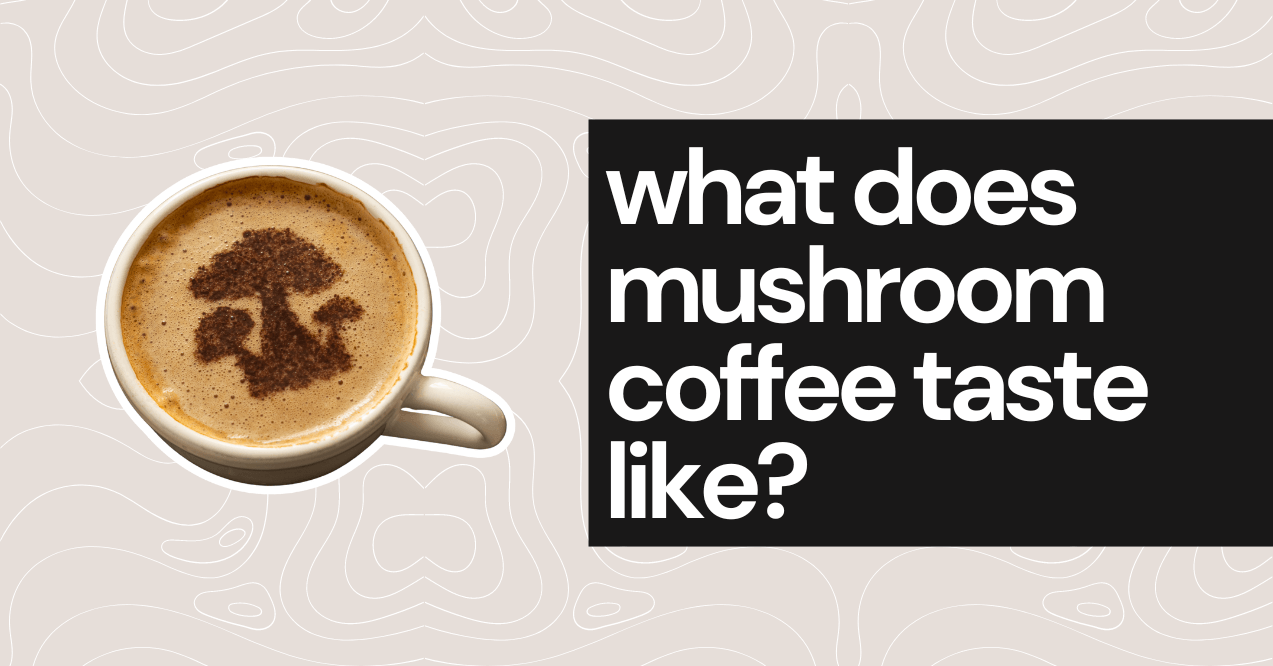mushrooms
by trumeta | September 8, 2023
Mushroom Coffee Side Effects
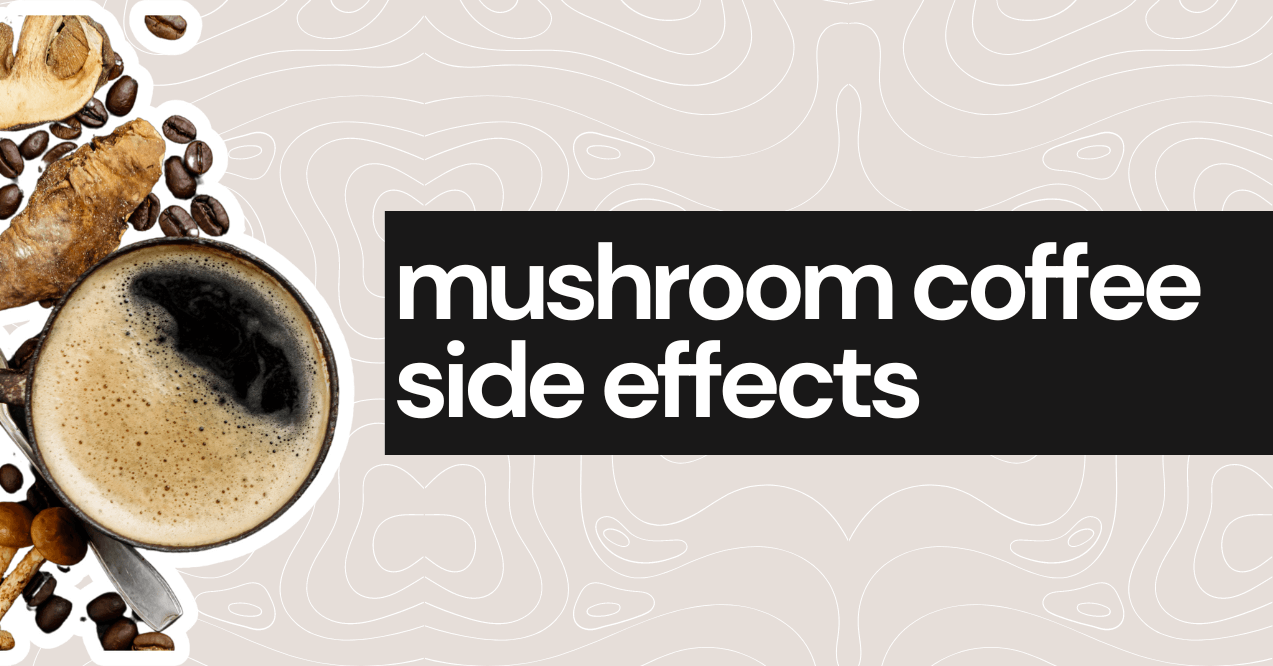
While digestive discomfort is sometimes reported as a side effect of mushroom coffee, this doesn’t overshadow the drink’s rising acclaim. In case you haven’t noticed, mushroom coffee has gained significant traction over the past few years. The boost in popularity can be attributed to the variety of supposed health benefits that the beverage offers, suggesting that for many, the advantages may well outweigh any digestive concerns.
What does mushroom coffee taste like? What are the biggest benefits? Ask mushroom coffee enthusiasts, and they’ll tell you that it boosts your immune system, improves sleep quality, boosts memory, and has antioxidant properties. And this is just to mention but a few benefits! Interestingly, science backs up these claims, so it’s not just a hyped-up drink with zero results. The health food community members also swear by it, and don’t we know that they are all about healthy feeding habits?
Now, mushroom coffee may sound foreign when one first hears of it. Coffee and mushroom? It’s certainly not the most appetizing concept, as most of us would agree. In actual sense, however, a perfectly brewed cup could potentially blow your mind away, in addition to serving up the health benefits it comes packed with. Here, we discuss the ins and outs of this beverage and find out whether possible negative side effects of mushroom coffee are worth getting yourself a cup anyway.
What Is Mushroom Coffee?
As its name most certainly lets on, it is a coffee blended with several mushroom extracts. Culinary mushrooms (shiitake, portobello, oyster, and the like) must have been your first thought, but you’re wrong. Instead, mushroom coffee features medicinal mushrooms such as cordyceps, reishi, and chaga.
Do you want to know why mushroom coffee doesn’t sound appetizing? It’s because the image our brains conjure up is this: a regular cup of coffee with mushrooms floating on top. Gross, right? Thankfully, that’s not what this health-packed beverage is. If anything, it’s as smooth, dark, and nutty as what you’re already used to.
When it comes to flavor matters, consumer reviews give the impression that this beverage is not that different from its regular counterpart. The consensus is that 99% of the time, you may not know the difference until someone lets you in on the truth, proving just how similar the mushroom variant is to regular coffee.
Is Mushroom Coffee Healthy?
For centuries, populations across the globe have exploited mushrooms for their medicinal value. Therefore, blending these extracts into coffee has to be beneficial, right? In truth, there is a need for more research into the health benefits of mushroom coffee. Several studies suggest possible benefits, and the beverage’s rise in popularity within the health food community supports research findings.
Members of this community promote optimal health via nutritious feeding, and the fact that they are aboard the mushroom blended drink’s bandwagon speaks positively to the beverage’s health benefits. However, more scientific research is still needed to support its astounding list of benefits. Regardless, that doesn’t stop mushroom coffee fans from screaming its many virtues from the rooftops.
Mushroom coffee positively impacts cognitive function, supports brain health, and boosts the immune system to protect your body against pathogens. Moreover, many are aware of the drink’s calming effects that reduce stress and anxiety. Mushroom coffee also has antioxidant properties that help preserve cells against damage and protect against certain types of malignant cell growth.
Mushroom Coffee Side Effects: What are They?
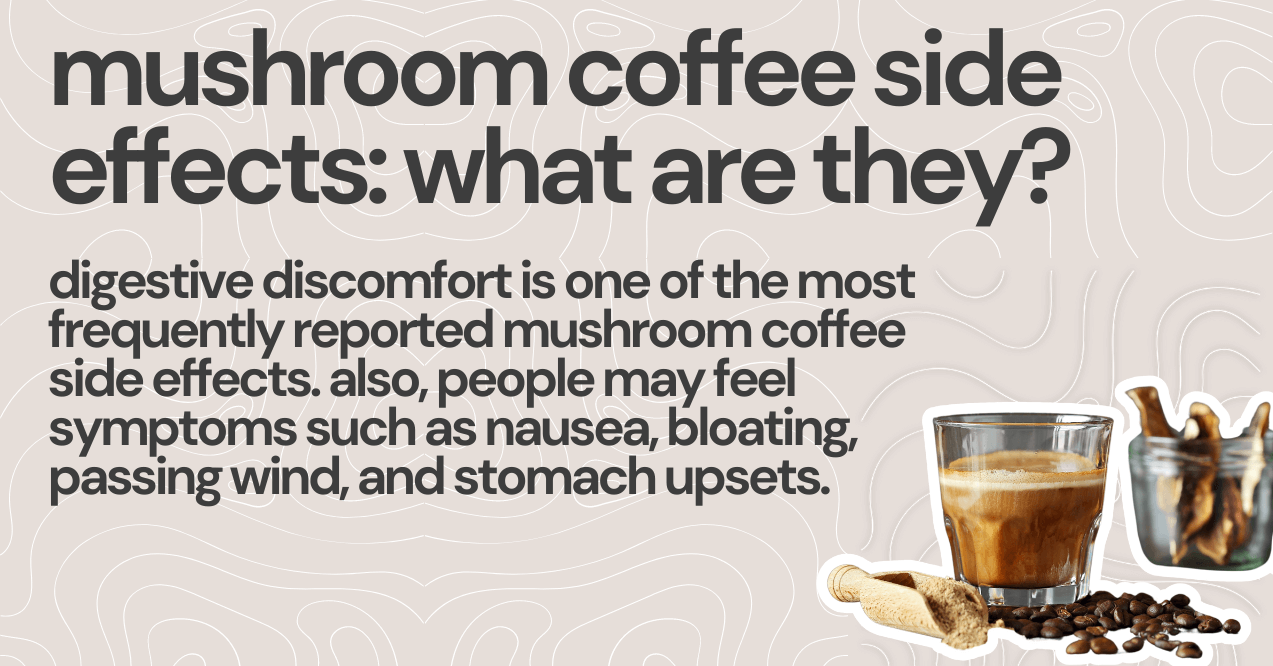
Like other compounds packed with multiple health benefits, mushroom coffee could have some side effects. As mentioned earlier, digestive discomfort is one of the most frequently reported mushroom coffee side effects. If you didn’t already know, mushroom extracts are an amalgamation of multiple compounds. The individual constituents of this blend may not agree with everyone’s gastrointestinal tract, resulting in symptoms such as nausea, bloating, passing wind, and stomach upsets.
If you are on prescription drugs, mushroom coffee could interfere with the body’s ability to absorb your medication. Doctors refer to this phenomenon as food-drug interactions, where a food or beverage hampers the absorption or elimination of a drug from the body. Mushroom coffee contains tannins that bind to certain medications, reducing the amount of medicine that the body absorbs. By extension, the beverage reduces the drug’s efficacy, that is, its ability to produce the desired effect.
If you have a low caffeine tolerance, some blends of mushroom coffee may be suitable for you on account of having lower caffeine content. In rare instances, the caffeine, however little, may increase your heartbeat, trigger stomach upsets, and cause anxiety. Chaga mushrooms, in particular, can also cause kidney problems for people with renal diseases if present.
Chaga mushroom coffee could potentially elevate one’s risk of kidney stones due to its high oxalate concentration. However, the occurrence of the same is very rare as it requires a diet totally devoid of fluids. Finally, mushroom coffee could also cause allergic reactions, although more studies on its allergen-triggering properties are necessary.
The Benefits vs. Side Effects of Mushroom Coffee
Thus far, we have repeatedly mentioned that mushroom coffee has been increasingly becoming a popular beverage on account of its potential health benefits. In the same vein, we also agree that not everyone finds it palatable and that this particular kind of coffee may not agree with everyone’s digestive system, or other body systems for that matter.
It is for this reason, therefore, that there is a need to strike a delicate balance between the benefits and risks of mushroom coffee. Weighing the two could be the point of difference between making the switch or sticking to your regular old cup of coffee.
Let’s start with the good stuff first and talk about the positive aspects of mushroom coffee. Some of the benefits the drink offers are:
- Immune System Support: Medicinal mushrooms used in this type of coffee are a well-known immune system modulator, enhancing one’s response to certain pathogens. The degree to which they strengthen immunity is specific to an individual’s needs, but won’t you sleep better at night knowing you’re all protected against disease-causing microorganisms?
- Antioxidant Properties: Certain mushroom coffee blends are rich in antioxidants. Antioxidants scavenge for free radicals within the body to neutralize them. By so doing, they protect against cell damage, mutations, some chronic illnesses, and inflammation, to say the least.
- Improved Cognitive Function: Although there’s still a need for more concrete evidence on this, current literature supports the assertion that mushroom coffee improves cognitive function, keeping the brain healthy and improving focus. Say goodbye to brain fog courtesy of a carefully prepared mushroom coffee. Learn how to make mushroom coffee today!
- Reduced Caffeine Intake for Reduced Jitters: If the crashes that come with a regular intake of highly caffeinated coffee hit you hard, mushroom coffee is what you need. It contains less caffeine, enough for the energy boost you desire without the jitters that follow later with traditional coffee.
On the other hand, some of the risks, otherwise known as mushroom coffee side effects, that healthcare professionals associate with the beverage include:
- Digestive Sensitivity: While it may take some weaning for some people to adapt to mushroom coffee, others will never be able to successfully consume the beverage without digestive discomfort. Nausea, bloating, gas, stomach upsets; you name them.
- Food-Drug Interactions: Similar to traditional coffee, the mushroom variant can potentially interact with prescription drugs and affect their effectiveness. As such, you should consult your healthcare provider should you be on any medication before embarking on your mushroom coffee journey.
- Allergic Reactions: Medicinal mushroom extracts present in this type of coffee are an assortment of multiple compounds, any of which could be an allergen to individuals with known allergies. Therefore, you must understand the specific ingredients of the blend you intend to consume and involve your doctor while at it. Better safe than sorry, don’t you agree?
- Palatability: Although not an out-and-out entry into the mushroom coffee side effects list, taste, texture, and palatability are crucial aspects of why coffee is a remarkably popular beverage. As such, it is one of the factors millions worldwide look into when considering switching to mushroom coffee. And while many consumer reviews speak to little to no difference between regular and mushroom coffee, the latter may have a distinct aftertaste that may not be to everyone’s liking.
Types of Mushroom Coffee
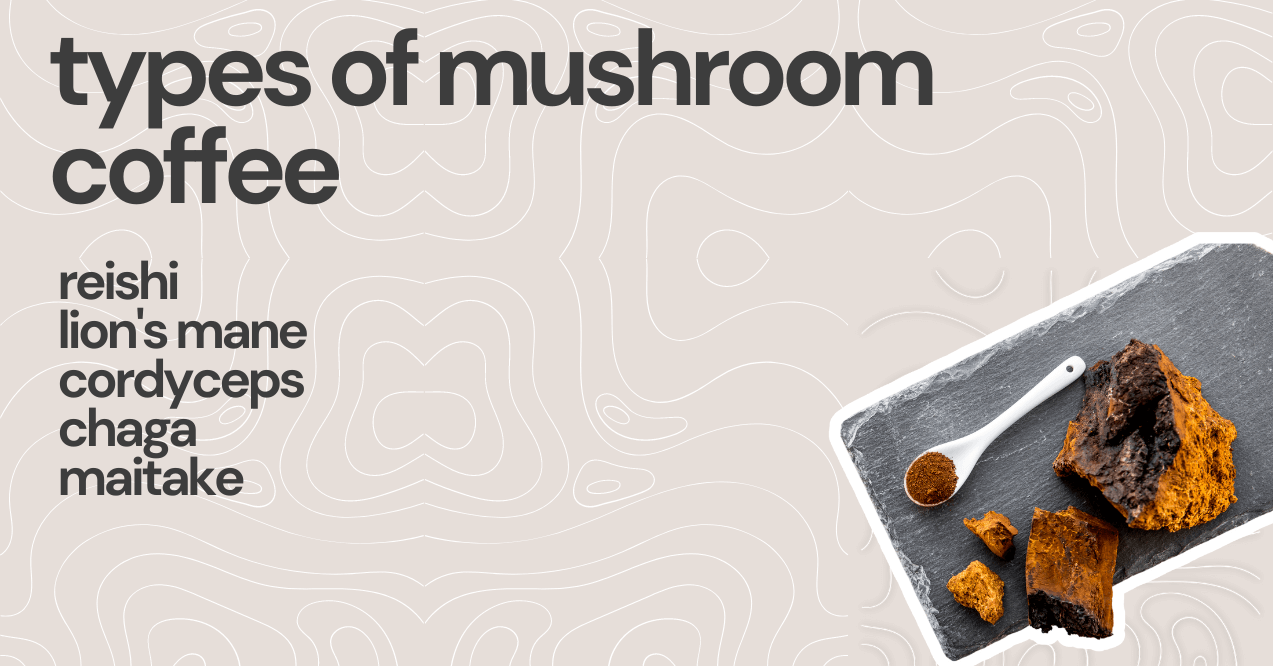
Mushroom species exist in the thousands, but only a few are grown for human consumption. And while there’s a distinction between culinary and medicinal mushrooms, both provide a myriad of health benefits when consumed. If you happen not to like having mushrooms on your plate but are agreeable to drinking them as a beverage, you can’t go wrong with mushroom coffee.
This healthier version of regular coffee features a blend of different medicinal mushroom extracts, with each main ingredient giving the beverage its name. The following are types of mushroom coffee.
Reishi
This study shows that the reishi mushroom (Ganoderma lucidum) is an immunity booster. The fungus improves the function of lymphocytes, a type of white blood cells. By so doing, reishi mushroom coffee helps fight pathogens. Lymphocytes identify and attack foreign substances within the body, including harmful bacteria, viruses, and other microorganisms.
Going by the findings of this 2020 test-tube research, reishi has strong anti-malignant cell development properties. In fact, the mushroom directly contributes to the death of malignant cells. As you can see, this mushroom offers a myriad of benefits when it comes to helping your body fend off both pathogens and malignant cells.
Moving on, are you one of those people who is constantly feeling tired? If your answer was in the affirmative, you’re in luck. Reishi mushroom coffee reduces fatigue and contributes to positive well-being. The mushroom-blended beverage also improves the quality of life for people living with uneasy and distressing mood disorders by having a calming effect that alleviates symptoms. If you’re worried about the benefit vs. risks balance, reishi mushroom coffee’s side effects include dizziness and stomach upsets. All the same, the beverage is safe when taken in moderation.
Lion’s Mane
Of course, it goes without saying, but lion’s mane mushroom coffee is a type of coffee with lion’s mane mushroom extracts featured heavily on its ingredient list. In scientific circles, this mushroom is known as Hericium erinaceus, and it is all about a healthy brain. It boosts memory and supports the brain against age-related cognitive impairment and mood disorders. In rodents, studies confirm that lion’s mane fungus combats and alleviates stomach and duodenal ulcers.
Although conclusive evidence of the same is still pending on humans, the working hypothesis is that this specific health benefit is also true for the human body. Still, on animal tests, research shows that lion’s mane has strong anti-malignant cell growth properties. The fungus not only slows down the growth of mutated cells but also kills them altogether. And while human studies are still necessary, healthcare professionals are working with the safe assumption that the same effect is true for humans.
Moving on, Hericium erinaceus also regulates blood sugar levels. Such a function is vital for supporting a healthy energy metabolism or helping manage the condition in persons already living with impaired blood sugar. Likewise, this same mushroom also promotes heart health. Talk about convenience! Lion’s mane mushroom coffee side effects are practically non-existent when one consumes the beverage in small amounts. In some individuals, however, diarrhea may directly result from ingesting lion’s mane coffee.
Chaga
Inonotus obliquus, the fungus the layman simply knows as chaga, is a potent antioxidant. As we previously mentioned, antioxidants scavenge for free-roaming radicals within the body, seeking to neutralize them. By so doing, chaga protects human body cells from oxidative damage that can lead to disease.
Chaga’s medicinal value really comes into play when consumed as a warm or hot beverage, and who doesn’t like their coffee steaming? In addition to supporting immunity, chaga mushroom coffee also reduces pro-inflammatory molecules that cause chronic swelling, joint stiffness, skin irritations, and autoimmune responses.
Results from several studies agree that chaga also supports healthy blood sugar levels and metabolism. Chaga mushroom coffee helps manage impaired blood sugar in people already living with this chronic illness.
Maitake
Scientifically known as Grifola frondosa, maitake mushrooms come packed with several health benefits worth tapping into. For starters, the fungus supports healthy blood flow and force. As you probably already know, doctors refer to imbalanced systolic-diastolic numbers as a silent killer due to the condition’s lack of symptoms. Consuming maitake mushroom coffee is, as such, the ace up your sleeve against this cardiovascular threat.
High cholesterol levels are another silent killer, especially because of their effect on cardiovascular health. But guess what? You’re in luck because maitake mushrooms also help maintain cholesterol within normal levels and support healthy systolic-diastolic blood force. Don’t they say that good things come in twos? That statement has never been truer! Maitake mushroom coffee also plays an active role in weight management and reduces the adverse effects of medical therapies for malignancies.
Cordyceps
Cordyceps fungi come in two species of medical importance: Cordyceps militaris and Cordyceps sinensis. Sure, there are hundreds of cordyceps species, but these two are what medical researchers are most interested in. In fact, while write-ups hardly distinguish between the two species, you can bet they are what authors allude to when using “cordyceps” as a general term.
A fun fact about cordyceps is that they have the potential to significantly boost exercise performance. The fungi do this by increasing your ability to produce ATP (adenosine triphosphate), a molecule that delivers energy to the muscles. It also promotes efficient oxygen utilization during physical activity, further increasing performance endurance during strenuous bouts.
This mushroom also has anti-malignant cell properties, as exhibited in several studies. According to the literature, cordyceps slow down the growth of malignant cells and alleviate the adverse effects of medical therapies. In particular, these fungi help improve leukopenia, a condition that severely reduces one’s white blood cells.
Cordyceps are also strong antioxidants. In addition, cordyceps also have an anti-aging effect. Who wouldn’t want to look revitalized even as age catches up with them? Cordyceps mushroom coffee could just be the answer you want to help remain forever youthful.
Final Thoughts
There’s much to like about mushroom coffee, especially concerning health benefits. They range from an improved immune system to increased physical performance and a healthy brain, to mention a few. At the same time, however, this mushroom-blended alternative potentially has some risks associated with it, such as all the others discussed in this text. Don’t they say that there are two sides to a coin? Well, unfortunately, this is true here as well.
On the positive side, though, these adverse effects are not engraved in stone. You don’t have to experience them, but being cautious is well within your rights. If you’re new to this, proceed with moderate amounts of mushroom coffee until your body is well adjusted to it. You can also involve your doctor in this journey you’re about to embark on to be safe.
Advertisement. This site offers health, wellness, fitness and nutritional information and is designed for educational purposes only. You should not rely on this information as a substitute for professional medical advice, diagnosis, or treatment. If you have any concerns or questions about your health, you should always consult with a physician or other health-care professional. Do not disregard, avoid or delay obtaining medical or health related advice from your health-care professional because of something you May have read on this site. The use of any information provided on this site is solely at your own risk.
Popular Posts
Recent Posts
Does Creatine Expire and Lose Its Effectiveness?
July 17, 2024
Should You Take Pre Workout Before Running?
July 11, 2024
What Are the Best Herbs for Muscle Recovery?
June 27, 2024
Can You Drink Protein Shakes Without Working Out?
June 20, 2024
